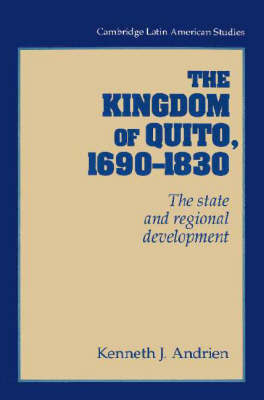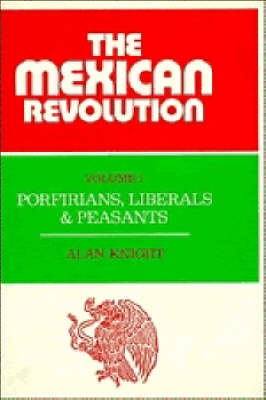Cambridge Latin American Studies
2 total works
Spanish colonialism exacted a high price from its subjects, promoting economic dependency as the accompaniment of a more vital, diversified economy based on a mix of industry and agriculture. The result was a legacy of underdevelopment, domestic social inequities, and economic subordination to the North Atlantic world. This volume examines how Spanish colonial policies contributed to profound socioeconomic changes, leading to patterns of underdevelopment in the Kingdom of Quito (modern Ecuador) from 1690 to 1830.
The Mexican Revolution: Volume 1, Porfirians, Liberals and Peasants
by Alan Knight
Published 24 April 1986
Alan Knight's comprehensive two-volume history of the Mexican Revolution presents a new interpretation of one of the world's most important revolutions. While it reflects the many facets of this complex and far-reaching historical subject it emphasises its fundamentally local, popular and agrarian character and locates it within a more general comparative context. Volume I analyses the Porfirian old regime - its politics and ideology and the patterns of socio-economic and, above all, agrarian change which the regime encouraged, within the dynamic context of global capitalism. it shows how these factors combined to produce the 1910 revolution, in which a resurgent urban liberalism joined in uneasy alliance with popular rebellion. Triumphant in 1911, the alliance collapsed in 1911–13, as the liberal experiment was undermined by popular revolt and finally terminated by counter-revolutionary coup. Volume 2 begins with the army counter-revolution of 1913, which ended the liberal experiment, installed military rule and gave renewed stimulus to revolutionary mobilisation, in which the forces of Villa and Zapata were prominent. Dr Knight recounts and analyses the major campaigns of 1913–14 and offers a fresh interpretation of the great schism of 1914–15, which divided the Revolution in its moment of victory, and which led to the final bout of civil war between the forces of Villa and Carranza. He considers the manner and significance of Carranza's ultimate triumph, and ponders the essential question: what had the Revolution changed?

